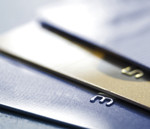When it comes to comparing credit cards you’d need to understand why you’re obtaining a credit card in the first place and what purpose you’ll use it for either than the convenience of immediately buying things that you need and paying for them later.
Whether you’re using your credit card as an emergency fund for unexpected medical bills or car repairs or for business purposes, travel or entertainment here are 4 notes to tick off on your checklist when comparing credit cards.
- Even before you swipe the cost of owning the card is very important
Annual or monthly costs must also be looked at. Whether you use the card or not monthly fees will be charged and that ‘small’ annual card fee is really the biggest fee of all. It’s a fixed cost for the price of owning the card.
- Credit card fee types
For emergency purposes choose a card with the lowest possible fees. If you’re travelling abroad, then the card with the lowest possible international usage fees is what you’re looking for. International ATM withdrawals can be expensive and even though credit cards don’t charge a swipe fee and are handy when it comes to purchases. Extra rewards for overseas spending can come with hefty administrative charges and also when you consider the currency conversion rates.
- Rewards come at a price
Nothing is ever really for free even the complimentary travel insurance that comes with your card it usually subjects you to pay for your holidays with that very same card. Therefore get the most out of your credit cards loyalty reward schemes by knowing the points required for different reward levels. Pay attention to its rewards partners or services to continue getting rewarded for spending by earning points or money back on your rewards card or discounts for purchases such as air tickets.
- The ideal of the cheapest card with the lowest monthly fee to keep monthly costs down isn’t so black and white.
As the rates you get awarded depend on a number of factors such as the lender you approach, your credit rating (or credit score) and the amount of outstanding debt you have. If you’re up to your ears in debt and have a bad credit score, chances are banks will not look favourably upon you and will charge you a higher rate for borrowing money.











